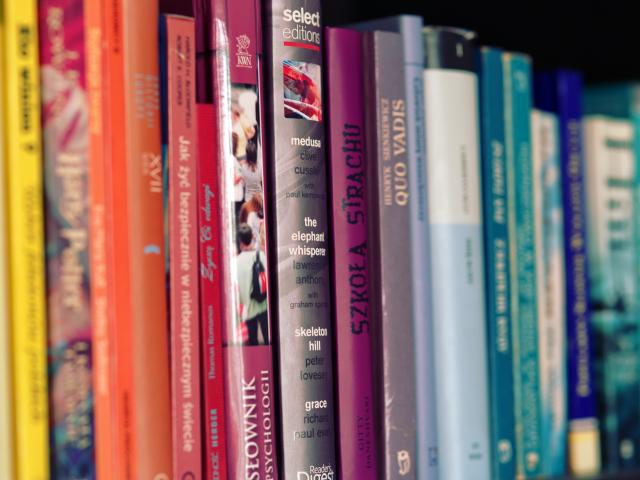Back in July 2017, Jane Barnett was riding her bike near Castell Coch in Cardiff when she was hit by a van. Her first memory after the accident was two days later, in bed at the University Hospital of Wales to find she had several skull fractures, an open fracture of her shin bone, nine broken ribs and many other injuries.
Since that accident, Jane has helped to shape several research studies, including the STUMBL trial, led by Dr Ceri Battle, Specialty Lead for Trauma and Emergency Care at Health and Care Research Wales. Jane lives in North Cardiff and has teenage sons.
Jane, 56, said: “I have no memory of the accident. I believe that I was hit by the wing mirror of a van and knocked off my bike. Because of my head injuries, I had little memory of the next few days in hospital and who visited me. My mother said I kept asking the same questions again and again.
“I think my family didn’t let on how anxious they were and I didn’t want my children to worry so I stayed positive about my recovery. Initially I was told I’d need to spend about a month in hospital, but I recovered well from my surgeries and was able to go home after just 16 days. On the day I was discharged, I was asked if I’d like to take part in some research.”
Huge benefit to taking part
Jane took part in the Wales Lower Limb Trauma Recovery Scale (WaLLTR) study, which developed and tested a tool to support the recovery of patients who had suffered from a type of severely broken leg, called an open tibial fracture. For this study, Jane made several visits to Morriston Hospital in Swansea, and took part in workshops and clinics as part of exercise treatment to help people like her to recover more quickly from their injuries.
Jane continued: “There was a huge benefit to taking part in the research. In the clinics I was given exercises to try and in the workshop we gave the researchers feedback on the use of a ‘Nintendo Wii style’ balance exercise. Being with others who had sustained similar injuries in the workshop was interesting and mutually supportive. One of the questions asked on the survey was how I coped with walking upstairs, but walking downstairs was more difficult for me so I suggested they ask that as well. People don’t usually fall upstairs after all, they fall downstairs! The consultant said that was a great point and added it to their form.
“My recovery took about a year and for a while so many little things were difficult. I couldn’t dress on my own or take a shower standing up and my mobility was restricted. I do remind myself that it took a lot of people to put me back together again and I feel quite lucky to have taken part in that study, which likely led to me recovering physically more quickly and feeling supported by the doctors and physios.”
Positive impact
Then in February 2020, Jane was invited by her orthopaedic consultant to share her experience of taking part in research and speak at the National Trauma Research and Innovation Collaborative (NATRIC) conference. During that event, Jane was introduced to research physiotherapist, Dr Ceri Battle.
Jane said: “Sharing my experience with paramedics, nurses, doctors and physiotherapists was a bit daunting but also very rewarding. They seemed genuinely interested in what I had to say. After my presentation, Ceri got in touch and asked if I would like to help with her research into treatment for rib fractures. I broke nine ribs in my accident and she needed a patient who could give feedback on her plan for the study.
“It is great to feel like I’ve had a positive impact on a study. The STUMBL Trial created a risk tool which has been proven to improve outcomes for people with rib fractures, so it is really fulfilling to help with research like that. The role I’ve played in Ceri’s research is to give the perspective of someone who’s been through it. I remember what it was like to be in hospital and to be overwhelmed by all the information that medical staff throw at you. I try to give the patient perspective of what it’s like to be discharged from hospital and managing the effects of an injury. Recovering and rehabilitating at home has its own challenges.
Without research
“Without people like me volunteering to help with studies, researchers wouldn’t be able to make vital improvements in caring for patients. It makes such a big difference and is really rewarding so I would encourage others to do it too. Although medical professionals are very knowledgeable there is an important role for lived experience. Unless you’ve lived through something, you are unlikely to be able to fully appreciate what an experience is like. As patients, we can provide an important perspective to research.
“Without research things might have been worse for me after my crash. For example, my leg which needed four surgeries, might not have been saved. The ongoing research of the plastics and orthopaedic team resulted in a fully functioning leg, ankle and foot with an impressive amount of skin grafts and metal work!”
Find out more about Ceri’s research and how the STUMBL study has changed lives.
To get the latest research news in Wales straight to your inbox, sign up for our weekly bulletin.



